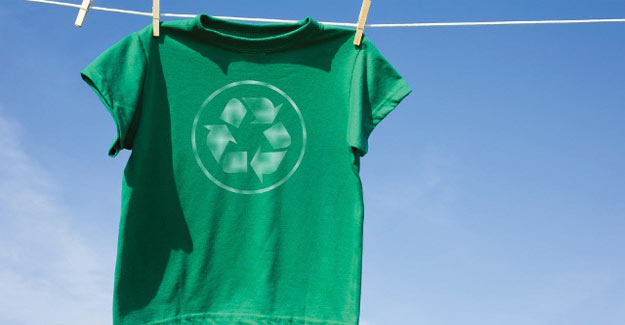
Waste Not, Want Not: Trends In Biodegradable Sportswear
With a growing global population, expected to reach 8.5 billion by 2030 according to the UN and increased use of landfill as one billion garments are thrown away annually, the textile industry is looking at bio-based synthetics in delivering a sustainable solution as well as essential performance to the sports and outdoor sector.
Sustainability continues on its path as featured in ISPO TEXTRENDS Dynamic mega trend, as a renewed efficiency of our natural resources and technology comes to the forefront with recycling being commendable but not full circle. Only pure composition garments of natural or synthetic origin can be recycled. It is not yet possible to recycle a multi-bend garment, closing the loop completely.
With the pressure on from the consumer wanting more sustainable products, the textile industry is looking to reduce, reuse, recycle and now biodegrade. Recycled synthetics have gained ground with nylon and polyester improving on their performance in comparison with conventional synthetics, but as with all alternative options to the real thing, getting the high level of functionality demanded by the consumer can be affected.
TEXTILES
Natural Degradability
The obvious option is to focus on natural fibers. Cotton, wool, tencel, modal and lyocell garments require only a few months to a year to bio-degrade. Great solution, but the problem is the lack of performance, essential to the sports and outdoor industry. The demand for multi blends as a synergetic approach is taken from the inherent attributes of natural and synthetic yarns is key.
In terms of biodegradability, it is not a solution for multi blends, even if a recycled synthetic is used. Instead there has been accelerated growth in development of bio-based alternatives to replace the synthetic content. Derived from plant-based ingredients such as corn, the new biodegradable synthetic materials have to meet the minimum standard for decomposition, but also the ability to perform.
Bio-Based Yarns
After several years of research, the Solvay group has now designed Amni Soul Eco which, thanks to an enhanced polyamide 6.6 formula, takes less than three years to biodegrade, unlike most synthetic fibers, which makes it possible to manufacture garments which decompose rapidly.
"Every year more than one billion garments are thrown away, thus contributing to landfilling and pollution of the planet caused by waste," said Daniela Antunes, Business Development Manager at Solvay. "For this reason at Solvay we have decided to produce a material which is eco-friendly every step of the way, as well as being highly performing, not only while it is used but also when it is discarded.
"This added value complements all the functional advantages of polyamide 6.6: "Amni Soul Eco has a green heart which goes together with its high performance in terms of quality, durability, comfort, breathability, easy washing and fast drying which are typical of traditional polyamide yarns," explained Antunes.
Biodegradable Hybrid Fabrics
US-based Global Merino, an ISPO TEXTRENDS winner, has developed a fabric made from 64% polyester and 36% merino wool winning the Eco Award at Performance Days. Whilst it is a blend, it is categorized as biodegradable due to the special polyester used, a recycled polyester from CiClO that decomposes much faster than conventional polyester.
Tested under the standards for Anaerobic Biodegradation of Plastic Materials, the result showed that the merino wool used is 26% decomposed after 149 days, over the same period, the polyester fiber when used as a staple fibers is at 20.7% or as a filament yarn at 17.6%. A virgin polyester fabric will only decompose a maximum of 4 % after 991 days, whereas fabrics containing the CiClO polyester would have already reached 78% degradation in that time.
Textile Excellence
If you wish to Subscribe to Textile Excellence Print Edition, kindly fill in the below form and we shall get back to you with details.













